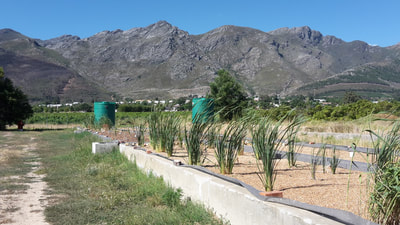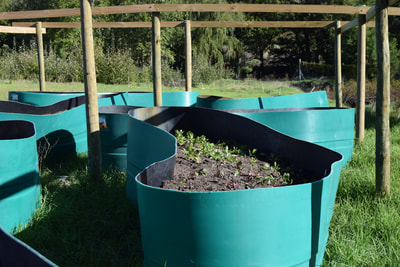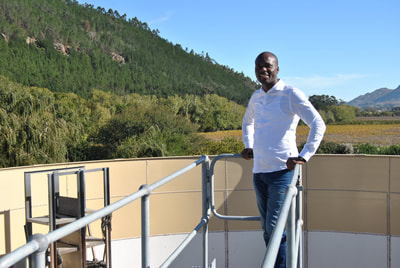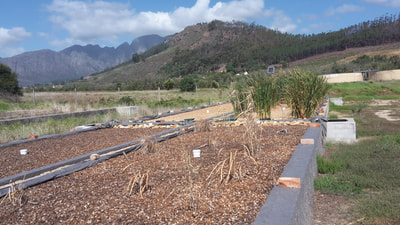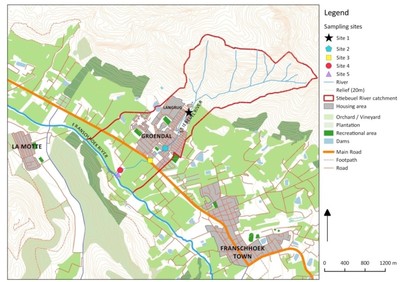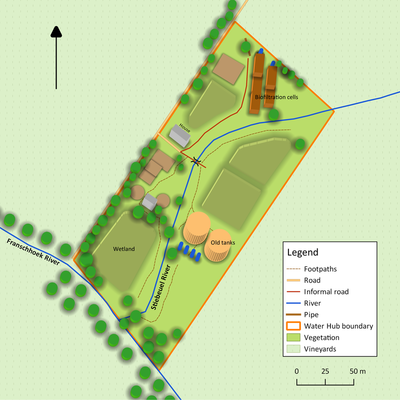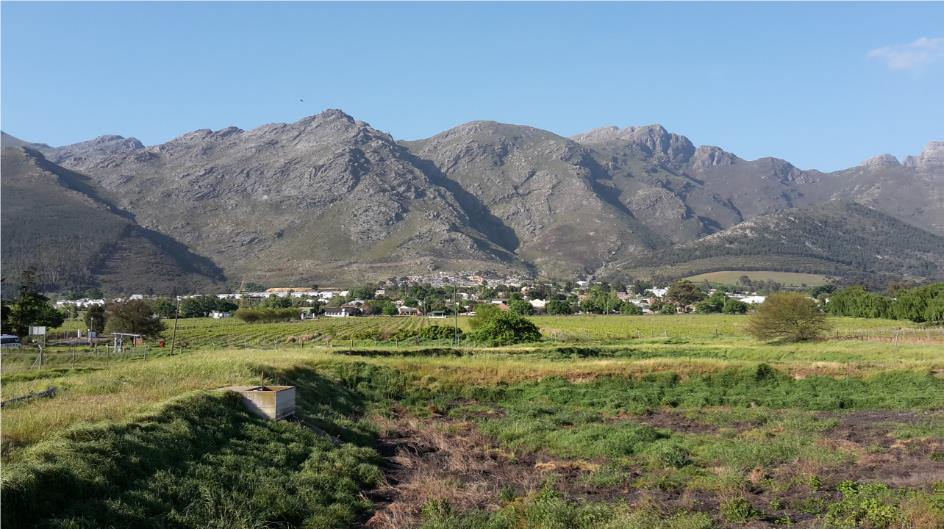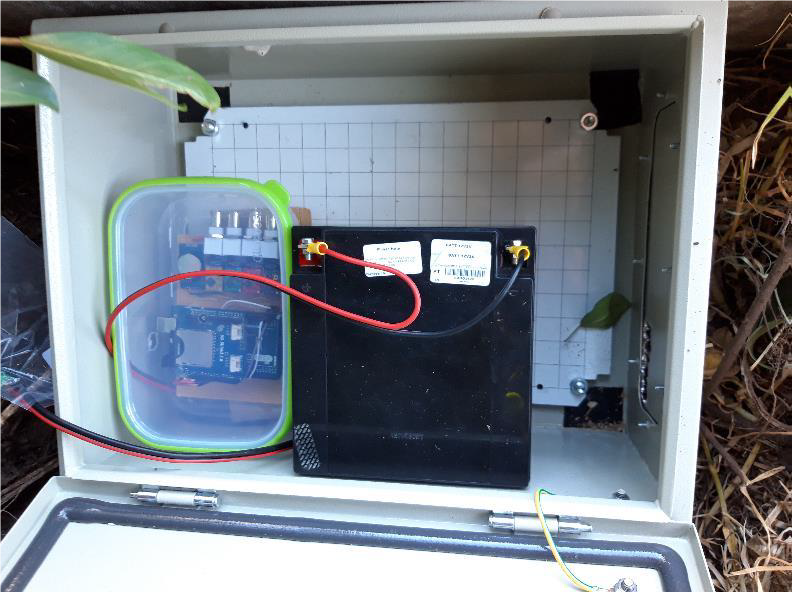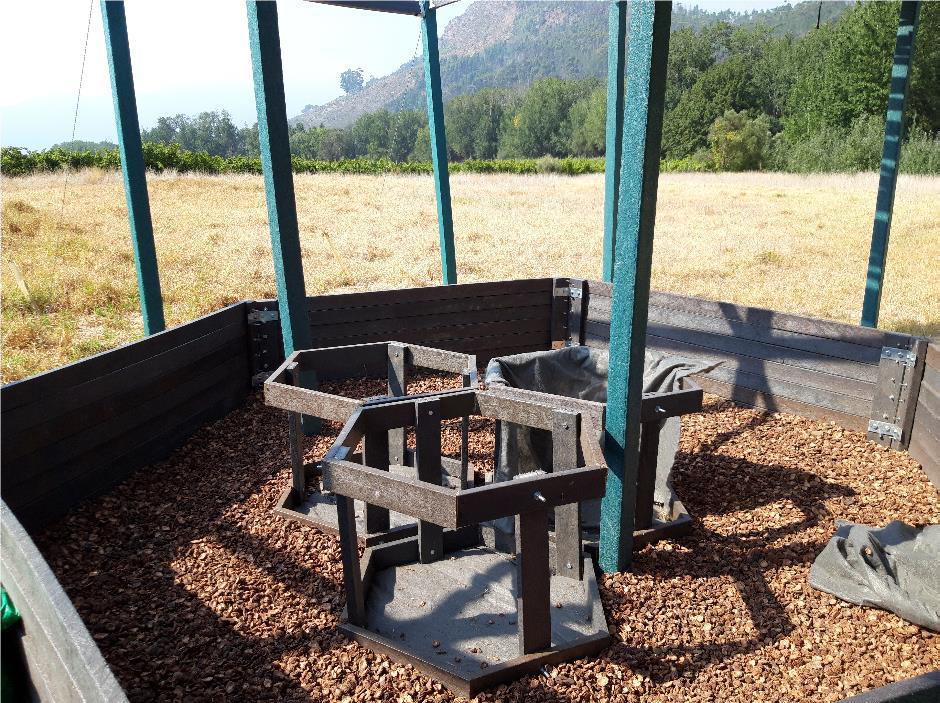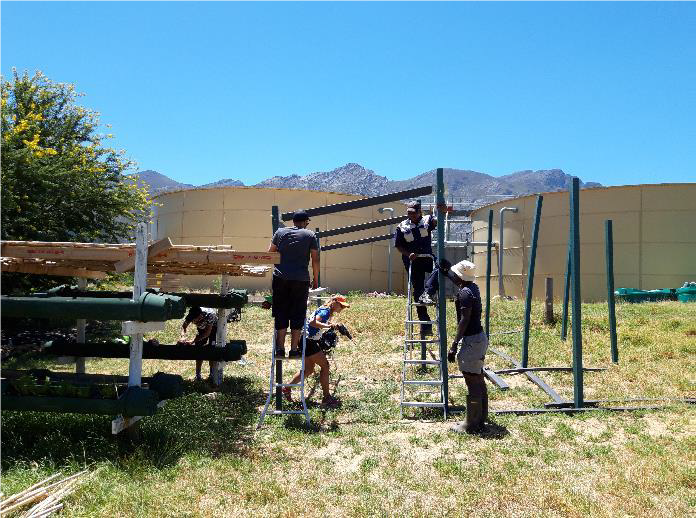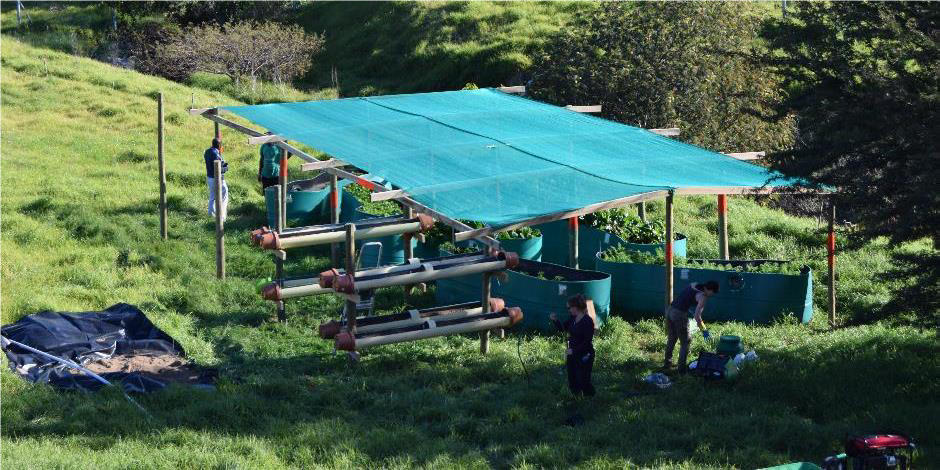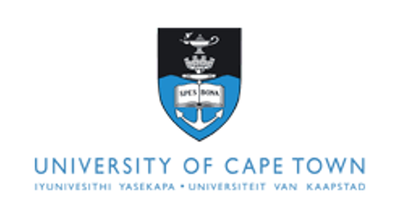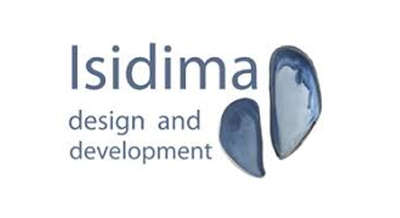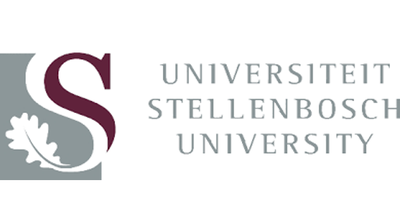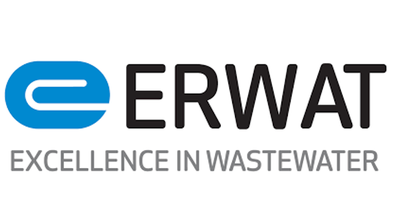Project
|
The Water Hub, situated in Franschhoek in the Western Cape, South Africa, is a new research and innovation center where large scale experiments aim at understanding the potential to use nature-based processes in treating contaminated surface water runoff flowing from a nearby informal settlement. The ULL is a demonstration, research and innovation site that uses nature-based solutions to treat contaminated runoff from an informal settlement, and to use this water to safely irrigate vegetables and also to generate energy from microbial activity during the treatment process. The focus is on opportunities for scaling the distribution of the small-scale interventions currently being tested there including:
|
Collaborators |
Additional information
The site is located approximately 80km north of Cape Town in a deprived peri-urban area in the Western Cape. Water availability and quality are the main drivers because of the location in a water scarce region, but also because water quality is severely contaminated from daily activities in an underserviced informal settlement situated a short distance from the Water Hub. It will operate entirely off the energy grid: all energy required in performing tasks such as pumping and treating water, and growing food, will be entirely reliant on solar energy. Energy demand and flow determines the capacity to treat a volume of water and will be integral to the management of food production in time. Other resource recovery projects include: the extraction of nutrients from stormwater; the use of algae as resource; the constructive use of treated faecal sludge as an alternate material for productive use elsewhere. Land ownership is of particular interest in the Cape Town ULL where informal settlements figure strongly, and where the lack of land tenure is a complicating factor. South African partners will be looking to the other.
Surface water drainage systems in informal settlements typically comprise unplanned, makeshift channels that are located in close proximity to high density housing structures and a public health risk and results in the degradation of receiving waters and environment. Progress in addressing the problem in South Africa and across the African continent has been negligible and extremely slow at best. Meanwhile the loss of valuable resources and irreparable damage is largely ignored. In a bid to solve the problem, local and national authorities apply costly, energy inefficient, conventional engineering designs and infrastructure.
Nature-based processes and solutions may offer an alternative approach, but it is conceded that scientific knowledge about the use of green infrastructure is limited. The starting nucleus of the Hub is a partnership with ERWAT, which provides wastewater conveyance and treatment to some 2000 industries and more than 3.5 million people, and engineering consultancy, Isidima, and the University of Stellenbosch’s Centre for Complex Systems. A series of six large biofiltration cells, each filled with different natural media including carbon sources, are used to polish and treat approximately 5000 litres of contaminated water per day and are removing as much as 75% of contaminants including bacteria, nitrogen and phosphate. The research aims to determine optimal retention time, volume and flow in each cell, and to re-use treated water for irrigating edible crops. In addition, energy in microbial fuel cells is used to power a small light source and recharging batteries of monitoring instruments. The findings already suggest that the performance of nature-based solutions is underestimated. New discoveries are showing how nature-based solutions are capable of treating a reasonably large volume of water; that treated water without the addition of chemicals is safe for irrigating edible crops; and that nature-based treatment processes offer a renewable source of energy. This Urban Living Lab aims to advance research and understanding of nature-based treatment and resource recovery systems including constraints, challenges, and economic costs and benefits.
Nature-based processes and solutions may offer an alternative approach, but it is conceded that scientific knowledge about the use of green infrastructure is limited. The starting nucleus of the Hub is a partnership with ERWAT, which provides wastewater conveyance and treatment to some 2000 industries and more than 3.5 million people, and engineering consultancy, Isidima, and the University of Stellenbosch’s Centre for Complex Systems. A series of six large biofiltration cells, each filled with different natural media including carbon sources, are used to polish and treat approximately 5000 litres of contaminated water per day and are removing as much as 75% of contaminants including bacteria, nitrogen and phosphate. The research aims to determine optimal retention time, volume and flow in each cell, and to re-use treated water for irrigating edible crops. In addition, energy in microbial fuel cells is used to power a small light source and recharging batteries of monitoring instruments. The findings already suggest that the performance of nature-based solutions is underestimated. New discoveries are showing how nature-based solutions are capable of treating a reasonably large volume of water; that treated water without the addition of chemicals is safe for irrigating edible crops; and that nature-based treatment processes offer a renewable source of energy. This Urban Living Lab aims to advance research and understanding of nature-based treatment and resource recovery systems including constraints, challenges, and economic costs and benefits.
News
- Progress report Jan 2021
- New blog post (Jan 14, 2020): Nature-based Urban Living Lab as a catalyst for the circular economy in South Africa.
- Progress report May 2019 here
- The ULL implemented an array of experiments and designs focused on achieving a strong focus on the nexus of Food-Energy-Water. more information can be found here
First update report
Videos
|
|
|

